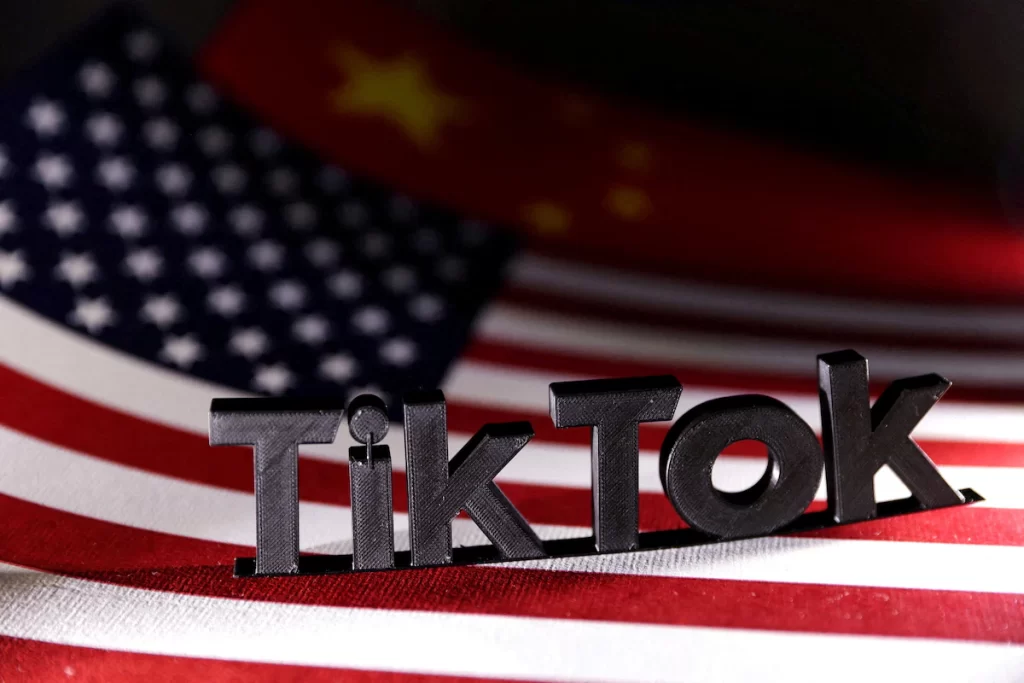As the United States gears up for a significant transition in leadership, Donald Trump, the incoming President-elect, has set his sights on resolving a contentious issue that has captivated the nation and the world. Trump has called on the Supreme Court to delay the enforcement of a law that could either ban TikTok or mandate its sale by January 19, 2025. By seeking additional time, Trump aims to allow his administration the chance to address the matter through political channels rather than relying on legal compulsion. This development marks a critical juncture in the ongoing debate about national security, freedom of expression, and the role of foreign-owned technology in American society.

The Background of the TikTok Controversy
TikTok, a social media platform owned by the Chinese company ByteDance, has faced scrutiny from U.S. officials due to concerns over data security and potential links to the Chinese government. Critics argue that TikTok could pose a national security threat by exposing American user data to foreign entities. While ByteDance has repeatedly denied these allegations, the platform has been under relentless pressure to address these concerns.
In recent years, efforts to ban or force the sale of TikTok’s U.S. operations have gained traction. The legislation currently in question seeks to either outlaw the app in the U.S. or compel ByteDance to sell its American operations to a domestic company. The January 19, 2025, deadline looms as a pivotal moment in this legal and political saga.
Trump’s Call for a Political Resolution
Donald Trump’s appeal to the Supreme Court signals a desire to shift the focus from legal enforcement to a negotiated political solution. By requesting a delay, Trump emphasizes the importance of addressing the issue comprehensively, taking into account not only national security but also economic and cultural considerations.
In his statement, Trump highlighted the potential for his administration to mediate a resolution that balances national security interests with the rights of American users and businesses. The President-elect’s approach suggests a willingness to engage with both ByteDance and U.S. lawmakers to find a middle ground.
Implications of the Supreme Court Decision
If the Supreme Court grants Trump’s request, the delay could provide much-needed breathing room for all parties involved. A pause in enforcement would allow the new administration to:
- Conduct In-Depth Security Assessments: With additional time, experts can analyze the risks TikTok poses to U.S. national security and propose targeted solutions.
- Negotiate with ByteDance: A delay would enable the U.S. government to engage in constructive discussions with ByteDance, potentially avoiding a complete ban.
- Consider Alternative Measures: Instead of banning TikTok outright, the administration could explore regulatory frameworks to ensure user data protection while preserving access to the platform.
However, if the Supreme Court denies the appeal, TikTok’s future in the U.S. could face immediate and irreversible consequences.
The Broader Debate: National Security vs. Digital Freedom
The TikTok controversy underscores a larger debate about the intersection of technology, national security, and individual freedoms. Advocates for banning TikTok argue that protecting sensitive data is paramount, especially in an era where cyber threats are increasingly sophisticated. On the other hand, opponents of the ban caution against overreach, highlighting the importance of maintaining a free and open digital landscape.
The resolution of this issue could set a precedent for how the U.S. addresses similar challenges in the future. As global tensions rise and technology continues to evolve, the balance between security and freedom will remain a central theme in policymaking.
The Economic and Cultural Impact of TikTok
TikTok’s popularity in the U.S. cannot be understated. With millions of active users, the platform has become a cultural phenomenon, influencing trends, music, and even political discourse. For content creators and businesses, TikTok serves as a vital tool for engagement and marketing. A ban or forced sale could have far-reaching economic implications, disrupting livelihoods and altering the digital marketing landscape.
From an economic perspective, forcing ByteDance to sell TikTok’s U.S. operations could pave the way for American companies to gain a foothold in the social media market. However, such a move could also strain U.S.-China relations, impacting trade and diplomatic efforts.
FAQs
1. Why is TikTok facing a potential ban in the U.S.?
TikTok is under scrutiny due to concerns that its parent company, ByteDance, could share user data with the Chinese government, posing a national security threat. Critics argue that banning the app or forcing its sale is necessary to protect American interests.
2. What is Donald Trump’s stance on the TikTok ban?
Donald Trump has urged the Supreme Court to delay the enforcement of a law that could ban TikTok. He advocates for a political resolution to address security concerns while considering the platform’s economic and cultural significance.
3. What could happen if TikTok is banned in the U.S.?
A ban would prevent American users from accessing the app, disrupting content creation, marketing strategies, and social interactions. It could also strain diplomatic relations with China.
4. How might a forced sale of TikTok impact the platform?
If ByteDance is compelled to sell TikTok’s U.S. operations, the platform could face challenges in maintaining its user base and operations during the transition. However, it could also ensure compliance with U.S. data security standards.
5. What is the significance of the Supreme Court’s role in this issue?
The Supreme Court’s decision could determine whether TikTok faces immediate enforcement of the ban or sale deadline. A delay would provide an opportunity for the incoming administration to negotiate a resolution.




